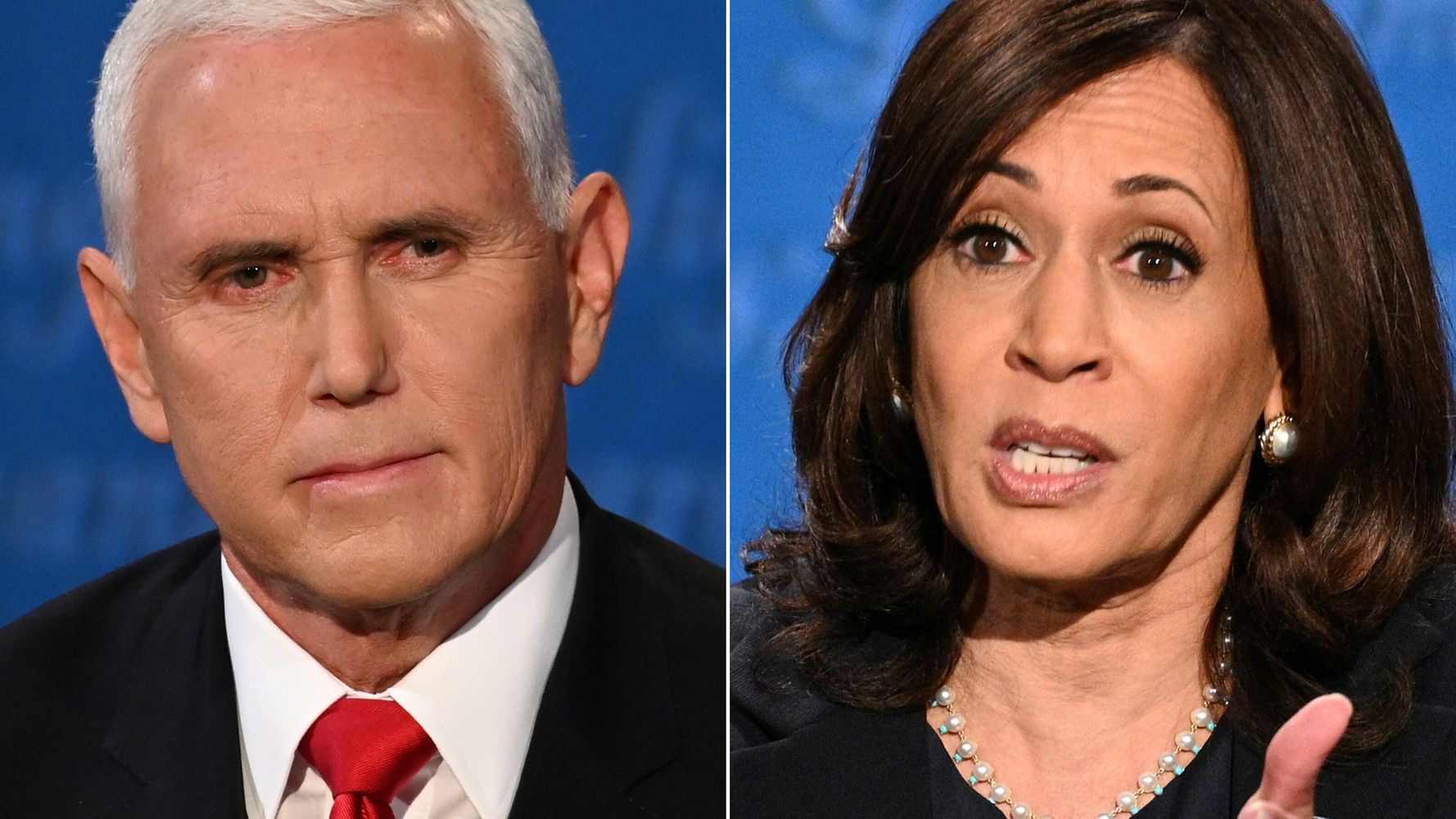The vice presidential debate between Republican Mike Pence and Democrat Kamala Harris started with a clash on the COVID-19 pandemic ― one in which Pence, head of the White House’s coronavirus task force, repeatedly misrepresented the truth and tried to change the subject.
Harris responded by bringing the conversation back to the facts. Namely, the U.S. has fared worse in battling the health crisis than almost every other developed country, with more cases and more deaths ― more than 211,000 as the debate began ― and that the Trump administration’s response is likely a big reason why.
The debate, in Salt Lake City, was vastly more civilized than last week’s presidential debate, when President Donald Trump repeatedly interrupted both the moderator and his Democraitc challenger, Joe Biden, turning the event into a circus.
But the arguments were just as sharp, especially on the subject of the pandemic. When moderator Susan Page asked Harris, the senator from California, how Biden and her would deal with the pandemic if they took office on Jan. 20, she started by attacking the Trump administration’s performance.
“The American people have witnessed what is the greatest failure of any presidential administration in history,” Harris said. “210,000 dead people in our country. … Over 7 million people have contracted this disease. One in five business closed. We’re looking at frontline workers who have been treated like sacrificial workers.”
Harris pointed out that Trump and other officials, including Pence, knew about the threat in January and downplayed the threat for months ― as journalist Bob Woodward’s reporting recently confirmed.
Rather than explain why the administration minimized the threat for as long as it did, Pence insisted the administration acted effectively and early by restricting travel from China, where the outbreak started.
Specifically, Pence said that the restriction bought “valuable time … to stand up the greatest mobilization since World War II.” Pence also claimed that Biden opposed stopping travel to and from China and criticized it as “xenophobic.”
In reality, the precise impact of the travel limit is murky, in part because it was far from a total prohibition. Tens of thousands of people made trips between the U.S. and China even after the limit was in place. And as media fact-checkers have pointed out, Biden didn’t actually oppose the restrictions. His “xenophobic” complaint response was a more general attack about Trump’s contsant use of the phrase “China virus.” (The president, now afflicted with COVID-19, used the phrase again in a video he released.)
But the more important point ― which Harris got across and Pence never really confronted ― is that the administration’s slow response is partly to blame for shortages of personal protective equipment and delays in developing and deploying a robust testing regime that has marred the nation’s ability to stem the pandemic.
Had personal protective equipment gotten to front-line workers more quickly and had testing been more available early on, public health experts have said repeatedly, it’s likely fewer Americans would have gotten COVID-19 and fewer would have died. (Amazingly, PPE is still a problem in many nursing homes.)
And while many state and local authorities also bear some responsibility for COVID-19 failures, Trump’s delay in recognizing the virus as a major crisis ― and, then, his ongoing resistance to embracing guidelines to fight it while agitating to reopen the country prematurely ― added to the U.S. death toll, public health experts have said.
Harris brought up these shortcomings, pointing out that Pence was and remains in charge of the administration’s coronavirus task force. Biden. meanwhile, rolled out some of the planks in his response plan in March ― a time when the Trump administration was still fumbling around, trying to figure out how to straighten out supply chains, and the president himself was still insisting the pandemic would go away quickly.
Pence responded by saying that the Biden agenda was similar to what the Trump administration was already doing. “It looks a little bit like plagiarism which is something Joe Biden knows a little bit about,” he said, referring to a scandal ― Biden using passages from a British politician’s speeches without credit ― that unraveled his 1988 presidential campaign.
Harris didn’t take the bait on that ― perhaps figuring that a decades-old case of verbal plagiarism doesn’t feel especially relevant today, especially compared with the personal and financial scandals that have hovered over Trump.
Calling all HuffPost superfans!
Sign up for membership to become a founding member and help shape HuffPost’s next chapter



















